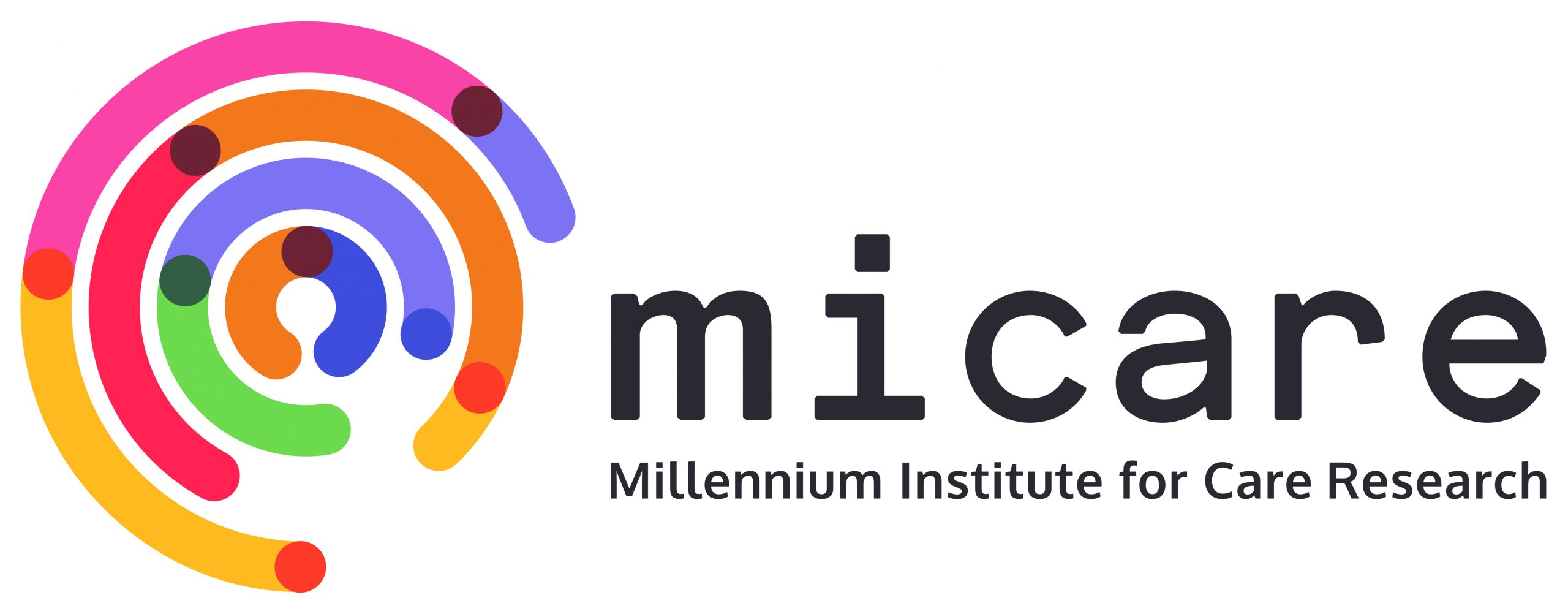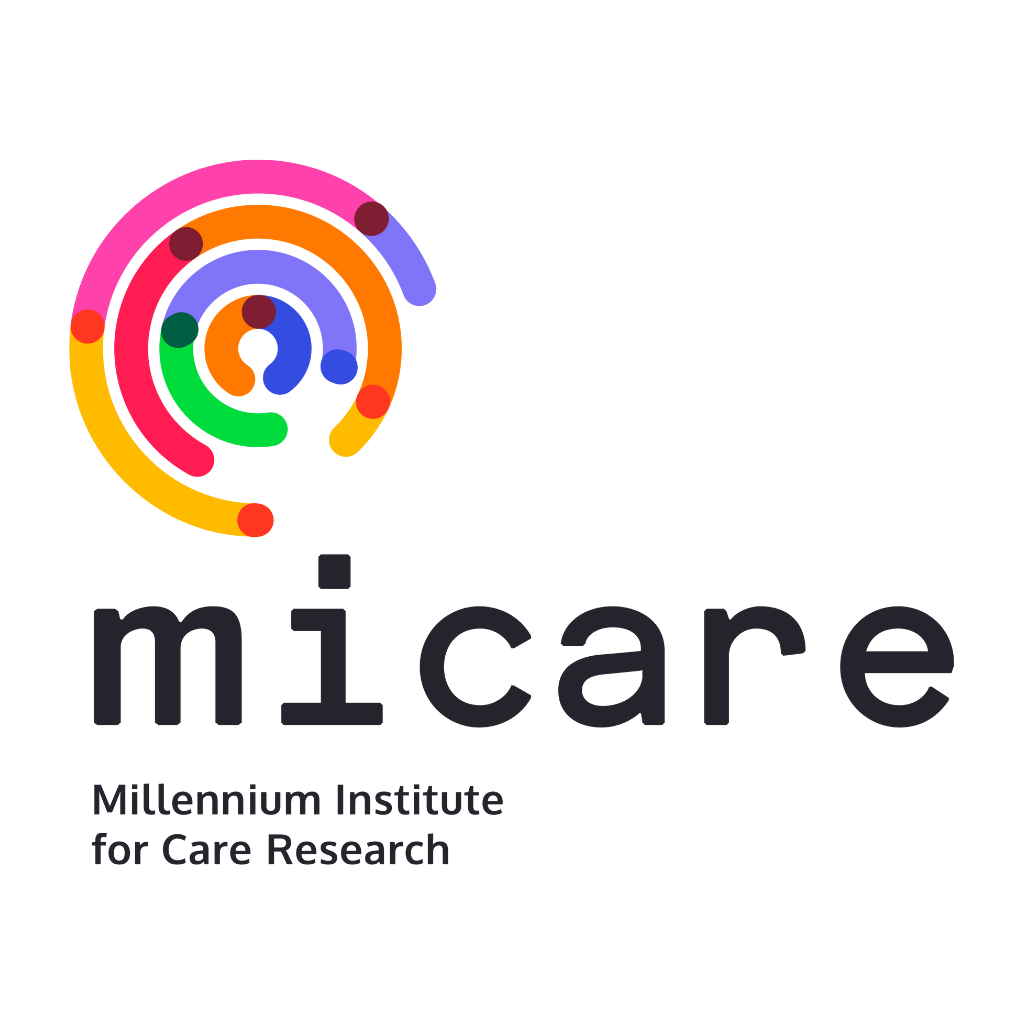Vasiliki Totsika is an internationally recognized researcher focused on intellectual disability and autism who has developed her academic career in the United Kingdom. Currently, she works at University College London (UCL), where she is also co-director of the Centre for Intellectual and Developmental Disabilities Research (CIDDR).
A considerable part of her current research is focused on families of children with intellectual disability, as well as special education professionals, health services, and social care, to help improve the experiences of children and adults with intellectual disability and autism, and their families.
In May, Dr. Totsika, who is also a researcher at the Millenium Institute for Care Research MICARE, visited Santiago to meet with her colleagues at Universidad Los Andes and participate in various university events.
We took the opportunity to talk to Dr. Totsika about some key issues in her research.

Lack of parental knowledge and awareness about neurodevelopmental conditions seems to be a problem that affects countries across the globe. What are your views on that?
I think it’s a significant factor for some countries more than it is for others. For example, there is evidence that in some countries it is the parent who picks up first on any signs of delay in the child, but in other countries that’s not the case.
You can see that we need better education for parents about stages of development and what to look out for in their children. But I think at the end of the day it is one factor in several other factors that impact on whether there’s going to be prompt recognition of the child’s developmental needs. In countries where there is a universal screening system that might be a little bit less important because there will be a system whereby professionals or health professionals will pick up on the fact that the child is missing some developmental milestones.
Of course, it is very important for parents to still be knowledgeable because even if somebody else picks that up, they need to be able to communicate that with the parent and actually convince them that this is indeed the case and that we need to think about how we assess a little bit more.
What is the most effective way that families and carers can support someone with intellectual disability or autism?
I think the most important thing is that families need to remember that their child with intellectual disability or their autistic child is primarily and firstly their child. They just need to do all the things that they would be doing with their child or for their child full stop.
I think that would be the most important thing to not always think of themselves as the educators, the interventionists, the dispensers of medication, the secretaries, the people who need to arrange healthcare to make some time to just enjoy being parents. I think if you do that, then everything else will fall into place.

School absenteeism has increased generally over the last two years after the pandemic and we know that students with intellectual disability tend to be absent from school for multiple reasons. What do we know about preventing school absenteeism among students with intellectual disability?
We know very little about prevention at this stage. But we do know that this is a problem as levels of school absence are significantly higher in this group of students compared to other groups of students. And this is something that has been happening for a long time. It’s not just a recent phenomenon.
To know how to prevent it, we first need to be able to describe it very well. And that’s where I think the stage of our research is at the moment. We need to understand the types of absence and what drives absence on any particular day.
It’s not just about the child, It’s also about the school and the parent. So we need to understand how these three parts of the system work together to determine absence before we move on to prevention.
However, in terms of a general approach to prevention what we know so far is about making sure that children have their educational needs met quite well in the school environment.
It’s about making sure that there are positive relationships between parents and school and good communication, and that everybody feels that they are heard and consulted and listened to, that schools and families work well together to support the child.
The other thing that we need to be aware of is that children with an intellectual disability in particular are quite vulnerable to poor physical health and that quite a lot of absence in that group of children is driven by that. And there are certain accommodations you can make to minimise the impact of that.
Within children with an intellectual disability, for example, quite a lot of absences are there because children have a lot of appointments to go to, speech and language, occupational therapy, physical therapy, and so on. And there are structural things that could happen to minimise absence.
For example, some of those specialists could be within the school environment so that the child doesn’t have to go out the entire day and so on, and this is something that is happening to a certain extent in special schools in the UK.
Chile is now in the process of establishing a care system. What does a good care system look like for you?
I think that one that aims very clearly to improve quality of life, but also that knows what quality of life is and what aspects of quality of life need to be improved and how. Because unless you have clear pathways to get there it’s not easy to make it happen.
A good care system is person-centered, that it’s all about what the person with intellectual disability wants, and needs, not about what we, the outside people, decide they need or they want.
It’s about giving people support to do the things they want to do so that they can decide where they live, and with whom they live if they live with their families there is good support for the families in terms of respite support, but also planning for the future and financial support.
If they live in residential services the support staff have a very clear understanding of what their role is, that they are there to support people, not to do things for people, not to deprive them of their independence which is a difficult distinction to make
There’s a difference between a social care system for people with an intellectual disability and one for example for people with dementia or who receive end-of-life care. People with an intellectual disability will be living in the care system for a long long time and their lives ought to be about being supported to have a meaningful occupation during the day, to actually maybe even have a job, have community participation, and so on.

What are the main takeaways of your visit?
I have been really impressed with the quality of the research that my colleagues in the intellectual disability group of MICARE do. We have very similar interests in child mental health and parental mental health. They have a really clear vision about supporting families with children with an intellectual disability and I saw that all the research that they design has this vision in mind.
What has impressed me very much is their attention to methodological robustness. They place a lot of emphasis on being able to have studies that are solid and therefore can produce evidence that will be used to inform interventions and support.
Another thing that I really liked is the fact that they have a very strong element of co-production and involvement of families, and of people with an intellectual disability in the design and the conduct of the research.
Finally, I’ve been impressed with how strong the links are between research and practise. They have a really good context both for integrating their practise with their research and also integrating the research they do with a lot of organisations that are there to support families.





